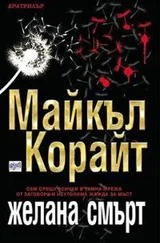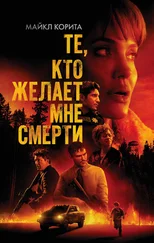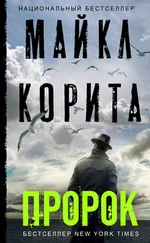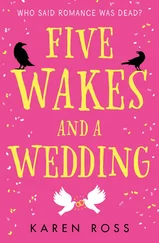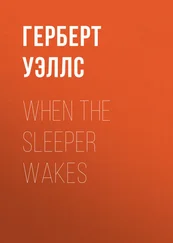What in the hell is that doing in here? It was a gasoline-fueled backup generator, capable of producing enough electricity to run the lights, TV, and a space heater or two for a few days. The rural road wasn’t a high priority for the Central Maine Power repair crews. Abby had never seen the generator inside the house, though.
Battery lantern on, generator inside? The power’s out, and the kid doesn’t know enough to leave the generator outdoors. But if he wants it, then he thinks we’re going to be here for a while. He’s not just going to take the phones and go. We’re waiting on someone else.
“Get comfortable,” the kid said, as if confirming Abby’s thoughts. “Let’s have a drink.”
Abby looked at the full whiskey glass, then back at Hank’s face, and shook her head. “What’s in it?” she asked.
“Nothing,” the kid said. “That’s a fine-quality whiskey. Not cool enough for the hipsters, you know, it’s not small-batch stuff, but it’s awfully smooth. And the name is nice. The name is... meaningful to me.”
He gave Abby a smile that looked positively warm and kind.
“Gentleman Jack,” he said, and his voice went a little wistful at the end, as if they were all sharing in this strange reverie. “And double-mellowed, it says. That’s a funny joke if you knew my family. But you don’t, unfortunately. Nevertheless, please have a drink, Abby.”
She shook her head again. The kid sighed and leveled the pistol so the muzzle was just inches away from Hank’s knee.
“We can drink,” the kid said, “or we can bleed.”
Abby took the glass. The kid nodded in approval and then spoke to Hank without turning to him. “You too, old-timer. We’re all celebrating.”
Hank took the glass. His hand was shaking, and some of the whiskey spilled over the top and dripped down the backs of his hairy fingers in golden beads. Abby saw for the first time that one of the cords binding him to the chair was actually an extension cord, and it had been cut and stripped so the bare wires glistened.
What in the hell had happened in here? What had Hank endured before making his call?
“Drink up,” the kid said, and both Abby and Hank took a swallow. The whiskey had a mellow burn, but nothing about it tasted unfamiliar or tainted. Abby drank a finger of whiskey and set the glass down. Hank got less of it in, his hand still shaking; some of the whiskey dribbled from the corner of his lip and down his chin.
“Good stuff, isn’t it?” the kid said. He was hardly more than a child. But Eric Harris and Dylan Klebold had been children too.
“Take the phones,” Abby said. “Take them and go. We don’t know what it’s about. We can’t begin to send anyone after you. We don’t know enough to do that.”
“Who else knows about the phones?”
“Nobody.”
“No? Then who bagged them? They were in a shoe box before.” He smiled at Abby’s reaction. “Don’t like that I know that, do you?”
She shrugged. “Don’t care. I bagged them. I labeled them too.”
“If I need an assistant, I’ll keep you in mind. Now, again, who else has seen them?”
Abby almost answered honestly. She was afraid, both for herself and for Hank, and she had no stake in whatever insanity was transpiring around that car wreck and the lies Carlos Ramirez had told before he was murdered. So tell the truth, her brain commanded. But instead she said, “Nobody else has seen them.”
“And how many people know you have them?”
“One. The guy I took them from.”
The kid studied her intently. “You understand how imperative it is for us to be honest with each other? How badly this night might go if you make one poor decision?”
“Yes.”
“Then let’s try that question again. You seem to struggle with even basic addition. I didn’t realize your academic record was as poor as your driving record.” Whatever he saw in Abby’s face then made him smile. “Yes, I’ve acquainted myself with your history. Mr. Bauer here has been helpful in that regard.”
Abby looked at Hank, who gazed back with apology, his face sickly white.
“One more time,” the kid said. “How many people know you have them?”
Again, Abby thought about telling the truth. Again, she decided against it. “Well, it would be two people, I guess,” she said. She nodded at Hank. “He makes two.”
“Will two become four if you think on it a little longer?”
“No. That’s all.”
“You sound convincing. And yet my friend Hank here said you took them to Boston. Which means you’re lying to me now.”
Hank’s exhale whistled between his teeth. “I didn’t say—”
The kid moved the gun to Hank’s temple without turning his head or body, the gun landing on its target point with the accuracy and fluid speed that came only with practice or natural talent. Or — far worse for Abby — both.
“Hank?” the kid said. “I’ve still got the floor.”
Hank was quiet. Abby tried to remember what exactly they’d said in the phone conversation they’d had when she was on the train. Did she tell him that Shannon Beckley had seen the phones? Did she say that she’d called Meredith? For that matter, had she called Meredith? No, Hank had called him. Right? Why couldn’t she remember something so simple? She was having more trouble thinking than she should have. Her mind felt foggy and slow.
She looked at the whiskey bottle. The kid followed her eyes.
“Let’s finish those drinks, shall we?” he said.
“No,” Abby said.
The kid lowered the muzzle of the revolver so it nestled in Hank’s eye socket.
“All right,” Hank said, and he reached for the glass. His one visible eye was wide and white with panic. “Come on, Abs,” he said. “Please. Just do as he says.”
“Those are the words of a man who wants to see the morning,” the kid said, and he smiled as Hank gulped the whiskey, sloshing more of it down his chin. “But this can’t be a one-man party. Abby? It will be that glass or this gun. You pick.”
Abby took the glass and drank more of the whiskey. It put a high and tight feeling in the back of her skull. It would not have been an unpleasant sensation in other circumstances. But now it was terrifying.
It’s going to slow you down. Even if he didn’t put anything else in it, the booze alone will slow you down if you don’t do something in a hurry.
There was something else in it, though. She could feel that already. This was the steroid-injected version of the fear that haunted any woman who was handed a drink made by a stranger — the taste was just right, nothing there to warn you of what was on the way, of oncoming blackness and horrors that you might not remember even if you lived to see morning.
“Nothing like a little whiskey on a cool dark night,” the kid said. “Tell you what, though. Let’s do something about that chill in the air.”
Still keeping the gun in his right hand, he reached into his back pocket with his left and pulled out a length of coiled parachute cord. The same kind that bound Hank to his chair. Abby tensed, but the kid just smiled and tossed the cord onto the counter.
“We won’t need that, right? You’re not running?”
“No.”
“Good. It’s getting cold in here. I’m going to run the space heater if you don’t mind.” He walked behind Hank, knelt by the generator, and flicked the battery on. Red lights glowed. He switched the revolver from his right hand to his left and jerked the starter cord. The motor growled but choked out. The cord demanded more of his attention than he wanted to give, and when his eyes darted away, Abby slipped her right hand into the pocket of her fleece and closed it around the key fob to the Chrysler. Its surface was smooth, but she was familiar with the four buttons on its face and knew which one operated the remote start. All she had to do was press it twice. The car was parked facing the house, and it would throw its lights toward the door, but, more important, the engine would turn over. She thought that would make the kid look in that direction. It would probably be a very fast look, but it would happen.
Читать дальше
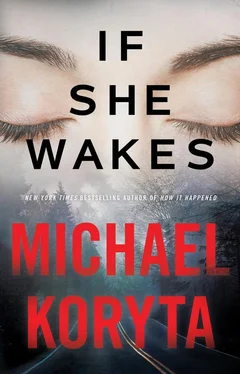
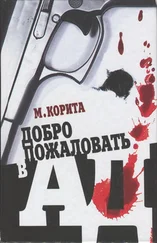




![Майкл Корита - Те, кто желает мне смерти [litres]](/books/396555/majkl-korita-te-kto-zhelaet-mne-smerti-litres-thumb.webp)
